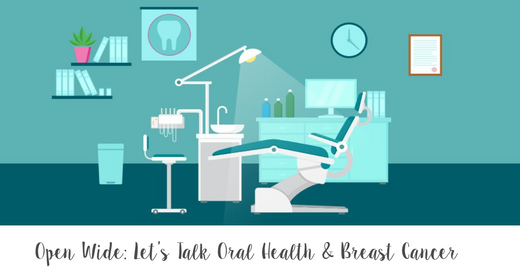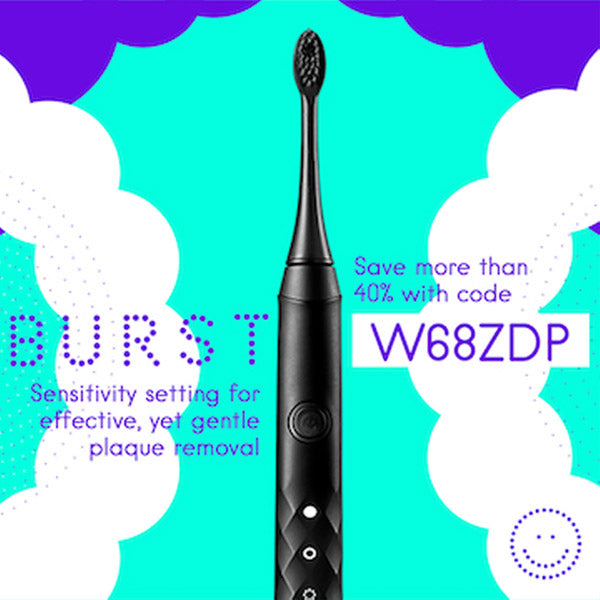Open Wide: Let’s Talk Oral Health & Breast Cancer

Thank you to the Young Survival Coalition for posting Jill's article,
Open Wide: Let’s Talk Oral Health & Breast Cancer
Caring for your mouth is about far more than having a pretty smile. Poor oral health has proven to raise risks for a variety of medical conditions, such as heart attacks, strokes (1), respiratory infections (2), pregnancy complications (3), and even Alzheimer’s disease (4).
After a breast cancer diagnosis, paying special attention to caring for your teeth and gums can help to reduce uncomfortable and potentially dangerous oral side effects. Minimizing oral side effects during treatments can also reduce risks for damage to long-term oral health and provide a better quality of life throughout survivorship and thrivorship.
Oral Health Risks from Treatment for Breast Cancer
The risks for experiencing oral health problems during treatments for breast cancer can depend on many factors including:
- How healthy your mouth is prior to starting treatments. A healthy mouth is less likely to experience negative oral side effects.
- Oral hygiene and lifestyle choices, such as diet or tobacco use.
- Additional medical conditions and medications may contribute to oral health problems.
- The types of cancer therapies administered.
- Chemotherapy, depending on which chemo medications create the cocktail, dosage, and duration
- Hormone therapies may contribute to dry mouth and loss of bone mineral density. Periodontal disease involves the loss of alveolar bone (the bone that supports your teeth).
- Medications that carry a risk of a condition known as Osteonecrosis of the Jaw (described below)









